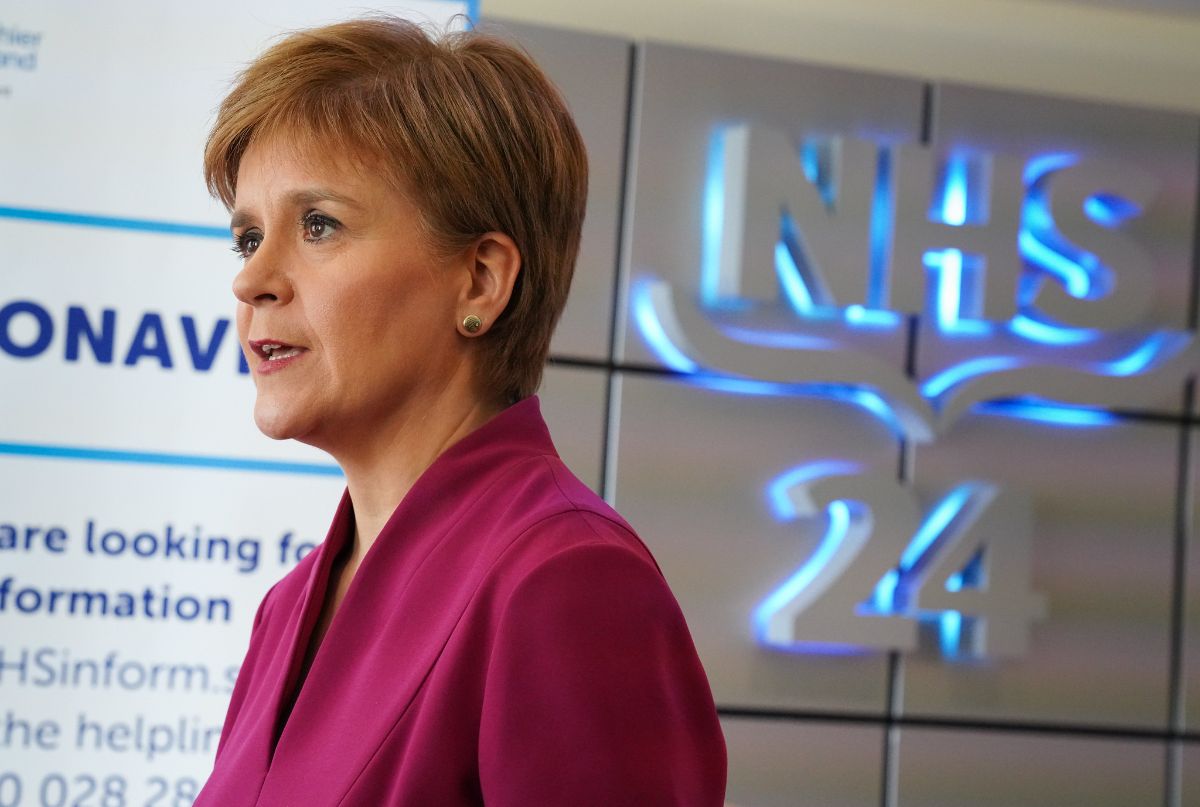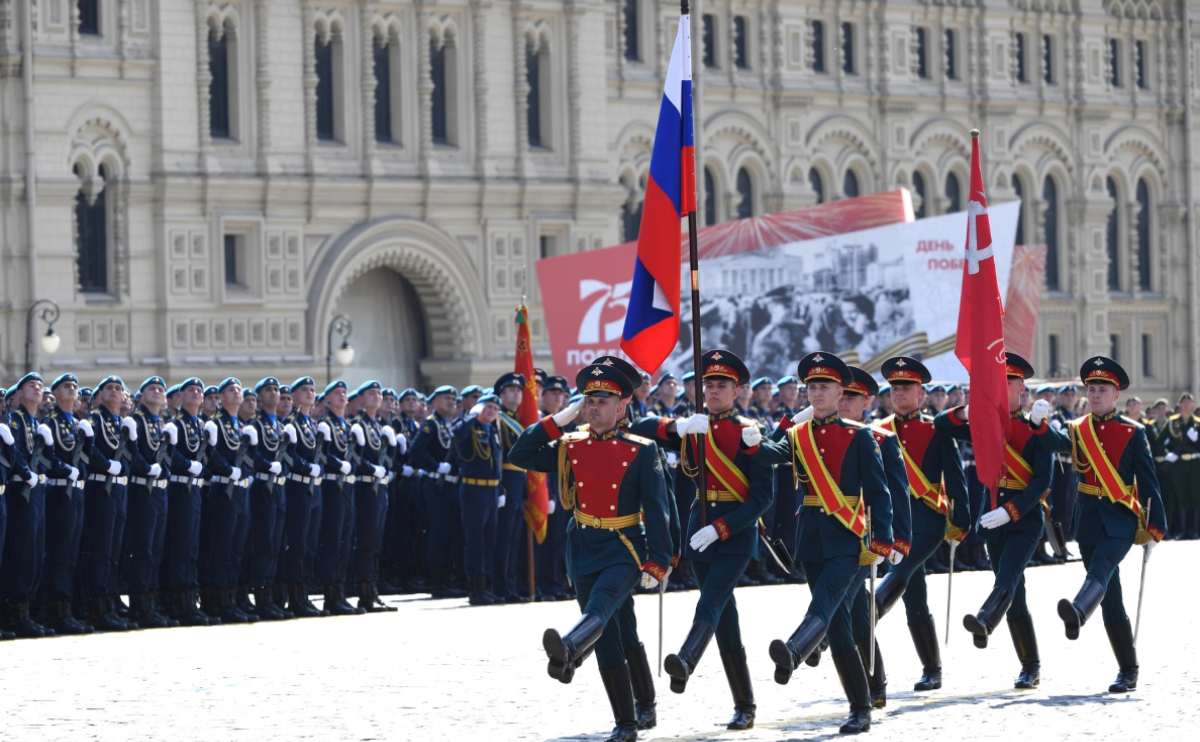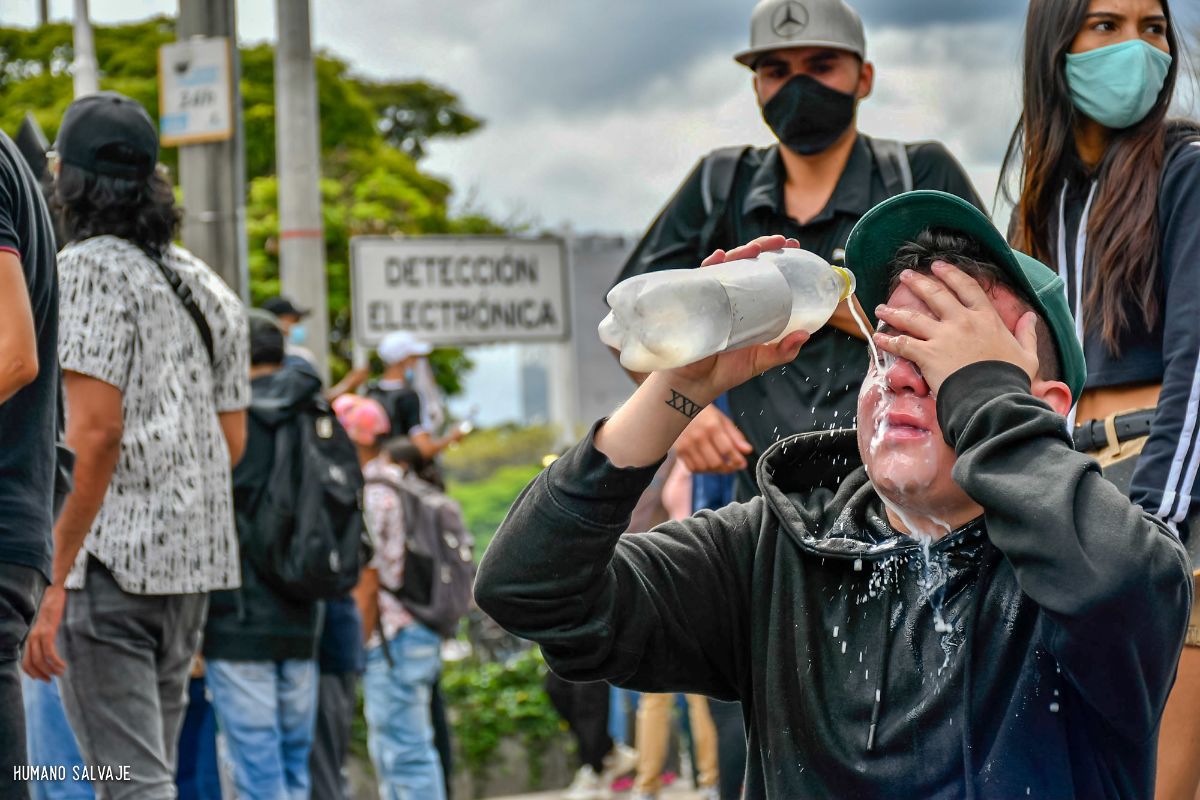Welcome to Factal Forecast, a look at the upcoming week’s biggest stories and what they mean from the editors at Factal. Published every Thursday, Forecast is a newsletter to help you get a jump-start on the week ahead. Get it in your email by subscribing for free.

A look ahead:
May 6/ Scotland’s parliamentary elections: Scottish citizens will vote for a new government Thursday following months of public inquiries into some of the country’s most prominent politicians.
- What’s happened so far: The Scottish National Party (SNP), which holds a minority government led by First Minister Nicola Sturgeon, is set to win Thursday’s elections. Their lead, however, may narrow after a public dispute between Sturgeon and her predecessor, Alex Salmond, over a string of sexual assault allegations against him. Some fear their fractious relationship and Salmond’s new party, Alba, could hurt the SNP’s chances of securing a majority in Scotland’s parliament. Sturgeon also faced backlash over allegations she mishandled the complaints. Although an independent investigation found her not guilty, a separate probe called her government’s actions “deeply flawed.”
- The impact: Salmond, who was cleared, said his party will help Sturgeon get the supermajority she needs to secure a second referendum on Scottish independence. But the first minister said the plan could backfire and split the pro-independence vote — allowing U.K. Prime Minister Boris Johnson to block a public decision on the future of the Union. Scotland voted against Brexit in 2016 and would likely rejoin the European Union if it gained independence.

May 7/ Mexico’s López Obrador meets with U.S. VP Harris: Mexican President Andres Manuel López Obrador will meet virtually with U.S. Vice President Kamala Harris on Friday to discuss immigration and coronavirus efforts between the countries.
- What’s happened so far: López Obrador plans to discuss a proposal to expand a tree-planting program to Central America. “Sembrando Vida” or “Planting Life,” is a central project of the Mexican president’s agenda in which rural residents receive income in exchange for planting and caring for trees on their plots. Last month, López Obrador asked President Joe Biden to finance an extension of the program in El Salvador, Guatemala and Honduras, arguing the program could help prevent farmers from leaving their land and migrating to the United States.
- The impact: Mexican Foreign Minister Marcelo Ebrard and Economy Minister Tatiana Clouthier are expected to join in the virtual meeting, where they will also discuss further cooperation against coronavirus. Harris’ office said the meeting will focus on “prosperity, good governance and addressing the root causes of migration,” without mentioning the tree-planting project.The initiative aims to create 1.2 million jobs, but critics fear some farmers are cutting down woodlands in order to qualify for the subsidy of approximately $225 per month.

May 7/ Labor board hearing on Amazon union election: The National Labor Relations Board (NLRB) will hold a hearing on Friday to consider objections to last month’s Amazon union election in Alabama, which saw voting employees at the Bessemer facility reject the effort by a more than 2-to-1 margin.
- What’s happened so far: The Retail Wholesale and Department Store Union claims the corporate giant interfered with the election by allegedly threatening to close the warehouse and warning it would lay off most of the proposed bargaining unit if the vote was successful. The NLRB said the evidence submitted by the union could constitute grounds to overturn the election results. Meanwhile, Amazon dismissed the allegations, suggesting the union is “misrepresenting the facts in order to drive its own agenda.” The company is grappling with a wave of recent strike actions organized by unions across Europe, as warehouse workers and delivery drivers protest working conditions during the pandemic.
- The impact: Regardless of how the regional director ultimately rules on the challenge, either side will be able to appeal the decision to the NLRB in Washington, D.C. The board could order a new election or even order the company to bargain with the union if it finds Amazon’s conduct to be “extraordinarily egregious.”

May 8/ Eid restrictions in the Middle East: Starting Saturday, multiple countries across the Middle East are tightening restrictions ahead of Eid al-Fitr, the three-day holiday that marks the end of the Muslim fasting month of Ramadan, in an effort to contain a resurgence in coronavirus spread.
- What’s happened so far: Cases are on the rise or holding at elevated levels in most Middle Eastern nations, prompting officials to announce preemptive measures for the holiday marked by cross-country travel and large family gatherings. Jordan and Morocco recently identified cases of the more contagious Indian variant of the coronavirus, raising concerns of a new wave of transmission in two of the few countries that have been able to lower their case counts with emphasis on strict lockdowns and immunization drives.
- The impact: Authorities are expected to impose a wide range of measures on and around May 13, the first day of Eid. In Oman, the government announced a nighttime curfew and shutdown of non-essential businesses for a week starting May 8, while Iraq is going into full lockdown for 10 days starting May 12. In Turkey, a country that has posted tens of thousands of cases each day for several weeks, a nationwide three-week lockdown started on April 29, a decision state-affiliated media is crediting with preventing a worse outcome.
May 8/ EU-India leaders meeting: India and the European Union will revive trade talks on Saturday amid a continued surge in coronavirus cases in the country and the bloc’s increasing fears about China’s growing economic grasp over large parts of Asia.
- What’s happened so far: Despite a long diplomatic history — the EU was India’s largest trading partner as of 2019, while India was in the EU’s top 10 — trade talks between the two were put on hold in 2013 after a prolonged failed to bridge differences in tariff reductions and visas for Indian professionals in Europe. A leaked draft statement, however, indicates there will be a fresh relaunch of talks on a free trade agreement. The meeting takes place virtually, as Prime Minister Narendra Modi has said he will not travel to Porto, Portugal, while the coronavirus pandemic in his country reaches new heights.
- The impact: With the extent of damage to India’s economy caused by the pandemic not expected to be known for a while, a deal binding two of the world’s biggest economies into an alliance appears attractive for both sides. It’s expected the alliance will lead to joint infrastructure projects, possibly upending some of China’s Belt and Road Initiative plans, as well as allowing the bloc to increase its presence in the Indo-Pacific region, protecting its interests from China.
May 9/ Victory Day parade in Moscow: Russia will hold its annual military parade in Moscow’s Red Square on Sunday to commemorate the allies’ defeat of the axis powers in World War II, known in Russia as the “Great Patriotic War.”
- What’s happened so far: After last year’s parade was delayed until late June and scaled back in scope due to the impacts of the coronavirus pandemic, this year’s parade returns to its normal time slot to coincide with the anniversary of the defeat of Nazi Germany. While invites to prominent foreign leaders are often part of the celebrations, this year will be relatively muted on that front, with the Kremlin’s press secretary confirming no special invites had been sent but that “allied” leaders such as Belarus’ Alexander Lukashenko were welcome.
- The impact: This year’s parade differs from last year’s contextually when Russia’s President Putin was seeking to shore up support for the referendum extending his rule until at least 2036. Putin’s approval rating has remained steady so far this year despite thousands being jailed in nationwide anti-corruption protests spurred in part by the poisoning of Kremlin critic Alexei Navalny. Regardless, as always, expect oddly juxtaposed photos of military hardware in Moscow.

May 10/ Aung San Suu Kyi hearing: Myanmar’s deposed leader Aung San Suu Kyi is expected to appear before a court on Monday as she remains under house arrest, some three months after being detained in a military coup.
- What’s happened so far: Former State Counsellor Suu Kyi was detained by the military in the early hours of Feb. 1, as they forcefully seized power from her civilian government in a coup. She faces a total of six charges, including one count of violating the official secrets act, which carries a maximum jail term of 14 years. Suu Kyi’s defense team said they have been denied private access to their client and have only been permitted to hold video meetings under observation from security forces.
- The impact: Suu Kyi will appear in court Monday alongside two other leaders from Myanmar’s former civilian government, though the exact purpose of the hearing is unclear. Suu Kyi previously criticized the pace of the junta’s legal process — while she has appeared in court on multiple occasions since the coup, her fate is unclear.
May 10/ Nepal PM seeks vote of confidence: Nepal’s Prime Minister Khadga Prasad Sharma Oli will seek a vote of confidence from the country’s Parliament on Monday in an attempt to remain in power.
- What’s happened so far: Oli needs 136 votes from the 275-member House of Representatives to win the confidence motion. The prime minister controversially dissolved the House and ordered new elections last December amid a power struggle within the ruling Nepal Communist Party, sparking large protests. Nepal’s top court has since reinstated the House and invalidated a merger between two factions of the ruling party in two major blows to Oli.
- The impact: With the Maoist Centre faction of Nepal’s ruling party withdrawing their support of Oli’s government, the vote of confidence seems increasingly less likely to succeed. This precarious situation comes ahead of a constitutionally mandated deadline for the Nepalese government, which must announce the budget for the next fiscal year by May 29.
May 11/ State opening of U.K. Parliament: Queen Elizabeth II will open a new parliamentary session in London on Tuesday with a speech outlining the government’s legislative aims for the next term. The event will take place just days after parliamentary and local elections across the United Kingdom and marks the formal start of the parliamentary year.
- What’s happened so far: Despite being an annual affair, there was no State Opening of Parliament in 2020. The last session began at the end of 2019 after a general election that was called following a prolonged parliamentary deadlock over Brexit. The event is always conducted with a degree of pageantry, but this year’s will be a more subdued affair due to coronavirus restrictions. It is also the queen’s first state occasion since the death of her husband, the Duke of Edinburgh.
- The impact: Following the results of the national and local elections across the country, Prime Minister Boris Johnson is expected to direct attention to his upcoming legislative agenda and coronavirus recovery measures as the country continues to gradually unlock.
May 12/ Congressional leadership visits White House: President Biden will hold his first bipartisan meeting with Congressional leadership on Wednesday, meeting with Senate Majority Leader Chuck Schumer, House Speaker Nancy Pelosi, Senate Minority Leader Mitch McConnell and House Minority Leader Kevin McCarthy.
- What’s happened so far: White House Press Secretary Jen Psaki said Biden is eager to meet with the leaders and discuss restoring trust in government, which has been plagued by divisiveness in recent years. Biden will no doubt also use the meeting to gauge support for his $4 trillion economic plan, which includes the $2.3 trillion American Jobs Plan focused on infrastructure and $1.8 trillion in spending on families, education and enhanced tax credits.
- The impact: The meeting will likely set the tone for future negotiations on Biden’s plan, considering its fate rests with lawmakers who need to turn political rhetoric into actual legislation.

What else matters:
Colombia tax reform protests: Violent protests erupted across Colombia last week after the government proposed a tax reform measure that aimed to collect 30 billion pesos (approximately $7.8 billion) to make up for the devastating effects of the coronavirus pandemic in the economy. Colombians took to the streets to protest against the measures, which would increase tax on basic products and services amid growing financial hardship. Although the government presented the set of measures as a relief fund for people whose incomes had been impacted by the pandemic, the tax reform was perceived as punishing a severely underpaid population that relies widely on the informal economy to survive. On May 2, four days after protests began, President Iván Duque Márquez announced he would withdraw the proposal. Colombia’s finance minister has since resigned.
- Watch for: At least 24 people have been killed and more than 800 injured in the past week, according to officials, but humanitarian organizations claim the actual death toll is much higher. Although the tax reform measure was withdrawn, demonstrations are likely to continue as labor and civil groups say the government hasn’t lived up to its promises of equal reform. Colombia is also entering its second wave of coronavirus infections, with ICUs at full capacity and infections rising before the spark of protests. Colombian government will meet with protest leaders next Monday to negotiate a way out of the crisis.
Kyrgyzstan-Tajikistan border clash: At least 36 Kyrgyz citizens and soldiers and an estimated 19 Tajikistan civilians and troops were killed in border clashes last week — the most intense fighting between the countries in years. Nearly 300 people were reported injured in the clashes. The fighting initially broke out on April 28 between civilians in Kyrgyzstan’s Batken region over a disputed water facility and the installation of security cameras on the Tajik side before escalating to live ammunition from each country’s border guards and, according to Kyrgyz authorities, Tajik attack helicopters. The deadly clashes show how easily escalation to military confrontation can occur along the border between the two former Soviet Republics, nearly half of which has not been demarcated and where border skirmishes between civilians are not uncommon.
- Watch for: The situation along the border has been stable for multiple days now after a ceasefire was reached. Evacuated residents, including more than 40,000 in Kyrgyzstan, have also begun to repopulate the areas deserted during the clashes. Both sides subsequently agreed to resume talks to demarcate their border, disputed since both gained independence from the Soviet empire in the early 1990s. Kyrgyz authorities also outlined a plan to give the Batken region special status, hinting at enhanced powers for regional authorities over law enforcement bodies and making political maneuvers worth monitoring within the context of border tensions.
Extended outlook: What’s on our radar in the coming weeks
May 6: United Kingdom elections
May 7: Hearing on objections to Amazon union election; U.S. VP Harris speaks with Mexico’s AMLO
May 8: EU-India leaders meeting
May 9: Victory Day Parade in Moscow
May 10: Nepal PM seeks vote of confidence; Aung San Suu Kyi hearing
May 11: UK Queen’s Speech
May 12: Biden invites congressional leadership to White House
May 13: Eid al-Fitr
May 16: Regional and municipal elections in Chile
May 17: Arms deal trial of former South African president Jacob Zuma begins
May 25: Anniversary of death of George Floyd
May 26: Travel bubble between Hong Kong and Singapore scheduled to begin
May 29: UEFA Champions League Final
June 1: Special election for New Mexico’s 1st congressional district
June 5: Ethiopian parliamentary election
June 6: Federal elections in Mexico
